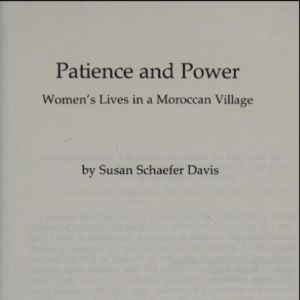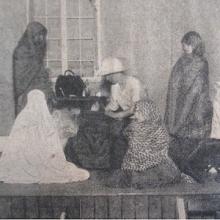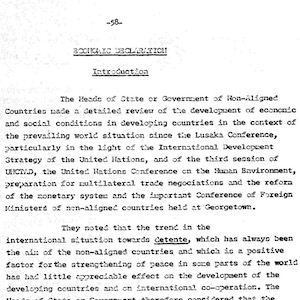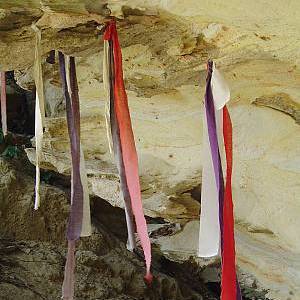Africa

Dreams of Trespass by Fatima Mernissi
Written by Moroccan feminist and sociologist Fatima Mernissi, Dreams of Trespass: Tales of a Harem Girlhood is a semi-fictional tale about a young girl growing up in a traditional Moroccan harem in the 1940s and 1950s.

Patience and Power by Susan Davis
Patience and Power, Women's Lives in a Moroccan Village is an anthology of anecdotes, interviews, and observations by American anthropologist Dr. Susan Schaefer Davis.

South African Native Affairs Commission report on education
In 1903, Alfred Milner, the British High Commissioner for South Africa, appointed the South African Native Affairs Commission to examine “the status and condition of the Natives” and to provide recommendations “on questions concerning Native policy” (1-2).

Long Teaching Module: Exploring Empire through the Lens of Childhood and Gender
As European empires expanded at the end of the end of the nineteenth century, imperialism came to permeate everyday life and had a pervasive influence on childhood, shaping everything from education to sports and literature.

Economic Declaration of Nonaligned Countries
This document is part of the economic declaration of the Fourth Nona

"The Problems of Third World Development"
The text is an excerpt from the 1974 Houari Boumédiène’s speech to t

Mijikenda textiles
Words are historical ar

Short Teaching Module: Precolonial Kenya, a Small-Scale History
World historians like to focus on large-scale interactions between d
Policy Statement of the Federal Military Government Issued by Nigerian Embassies Abroad, 1966
In 1966, Nigeria was only a few years removed from colonial status. Nigeria as a unified political and economic entity had only been established in 1914 with the merger of the very different regions of northern and southern Nigeria.
Statute of the International Criminal Tribunal for Rwanda, 1994
Established in November of 1994 by Resolution 955 of the United Nations Security Council, the International Criminal Tribunal for Rwanda (ICTR) was intended to try those responsible from the Rwandan genocide ethnic Tutsi and politically moderate Hutu and other Rwandan violations of international